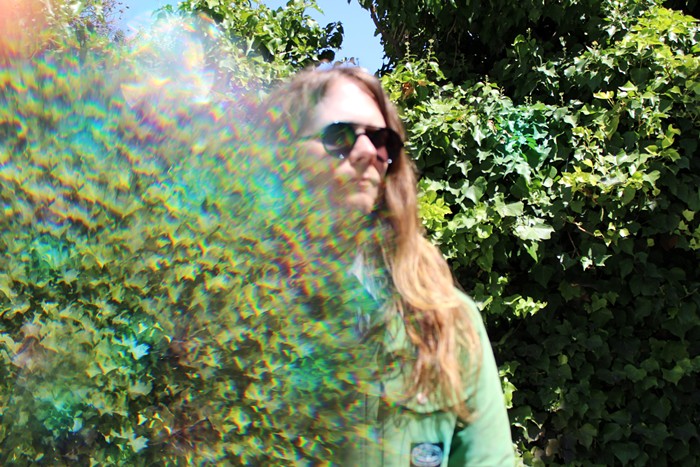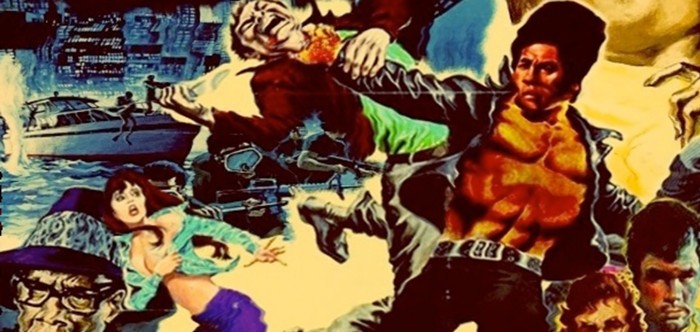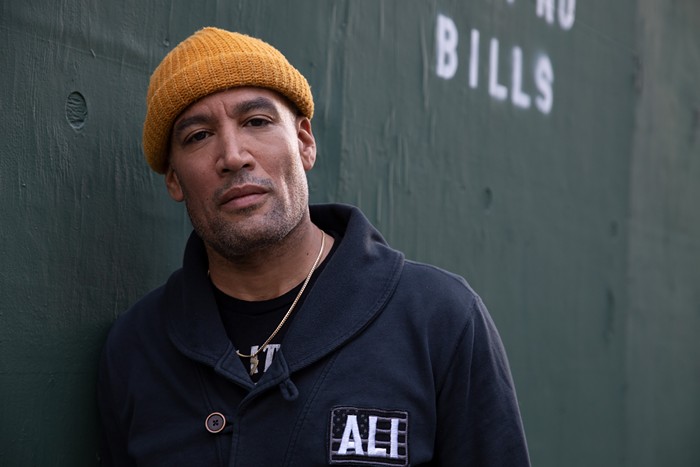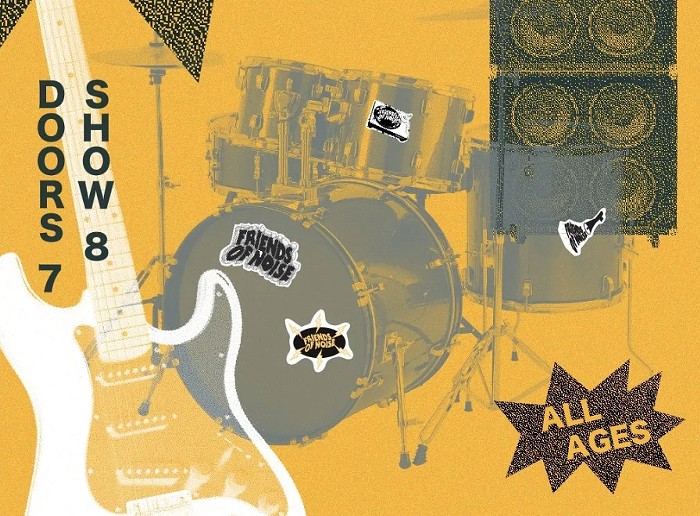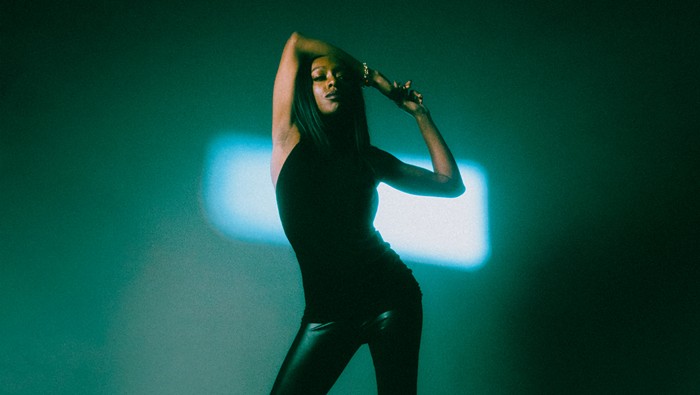VURSATYL, DJ REV SHINES, RENAISSANCE COALITION
(Analog Café, 720 SE Hawthorne) Tonight celebrates Crooked Straights, the debut solo release from Portland emcee Vursatyl. The veteran rapper initially blew up as a member of Lifesavas, with cohort DJ Rev Shines and emcee partner/producer Jumbo. Crooked Straights is 10 tracks of soulful sounds and lyrical mastery, courtesy of venerable UK-based label BBE Records, with a roster that includes Pete Rock, Madlib, and J Dilla. Despite Vurs' international cachet—evidenced by Maseo of De La Soul releasing an exclusive preview mix of the album online—the record finds the Portland emcee collaborating with many local artists, including production from Dave Notti and Hi-Res alongside cuts from DJ Flip Flop. Standout track "Super" has a video with cameos from young Portland hip-hop talents Trox, Mic Capes, Zoo?, and Maze Koroma. The latter two emcees, both of the Renaissance Coalition, open the show. RYAN FEIGH
SHY GIRLS, P. MORRIS, BLOSSOM
(Wonder Ballroom, 128 NE Russell) Something was lost when Shy Girls stopped being a six-piece live band—a whip-tight outfit with live drums, backing singers, and soprano sax—but the idea man behind those silky-smooth slow jams, Dan Vidmar, hasn't thrown his bae out with the bathwater. Shy Girls' new mixtape, 4WZ, is an immersive dip into surrealist bedroom R&B, with liquid synths layered on thicker than lotion, and after-hours rhythms that tick by scarcely faster than a pulse. If some of the project's originality was lost in Shy Girls' transitive grab for a slice of the Weeknd pie, you can't really go wrong when Vidmar's emotive songwriting and clear, clean vocal chops are at the helm. Unlike the '80s and '90s influences that dominated Shy Girls' early material, 4WZ is very much of this particular moment in time, and Vidmar's versatility suggests a long evolution of similarly seductive Shy Girls releases to come. NED LANNAMANN
DOKKEN, KILLER BEE
(Bossanova Ballroom, 722 E Burnside) Dokken deserve more credit than they receive. Ask anyone who their favorite hard-rock/glam band is from the '80s, and odds are they're gonna tap Mötley Crüe, Cinderella, or (maybe) Poison before they think of Dokken. It's really a shame because in a lot of ways, Dokken are a much more competent band than the other three ever were. First off, they're much more tenured, having recorded their first demo in 1977. Secondly, Dokken didn't need over the top feathered hair, make-up, or lacy post-apocalyptic clothes to distract from their music. They had the solid guitar work of George Lynch and the flawless vibrato of Don Dokken. They didn't use Aqua Net or pucker their lips; they had well-written, catchy rock 'n' roll tunes instead. And they're still pretty good. Dokken's 2012 release Broken Bones sounds like any other slab they released during their heyday. It just has bigger production, and features the capable Jon Levin on guitar instead of Lynch. ARIS WALES
BERLIN, THE SMITHEREENS, THE TUBES
(RoZone at Tom McCall Waterfront Park, 1020 SW Naito) See My, What a Busy Week!
REFUSED, WHITE LUNG, DON'T
(Doug Fir, 830 E Burnside) Nearly 20 years ago, Refused released The Shape of Punk to Come, effectively pioneering—or at least popularizing—intellectual hardcore, the genre's limpest appendage. In hindsight, it's hard to understand why so many people thought this shit was profound (it's kind of like the Fight Club of punk); the record's flirtations with music outside the punk spectrum—jazz, electronica—are as perfunctory as the strings on an Electric Light Orchestra album (not to mention as embarrassingly dated). And its underlying "message"—that Refused were somehow more "authentic" than their contemporaries because they cross-pollinated punk with forms of music that hadn't yet been appropriated by the Warped Tour contingent—is completely nullified by the fact that the band fucking reunited for transparently capitalistic reasons. To say that The Shape of Punk to Come is a "bad" record might just be an iconoclastic stretch; it has its moments (and then it has its other moments, where it literally sounds like Limp Bizkit with synthesizers). But it embodies an elitist musical ideology that, while perhaps novel in 1998, feels antithetical to punk as a whole, a medium that's always been most effective at its stupidest and least self-conscious. MORGAN TROPER
